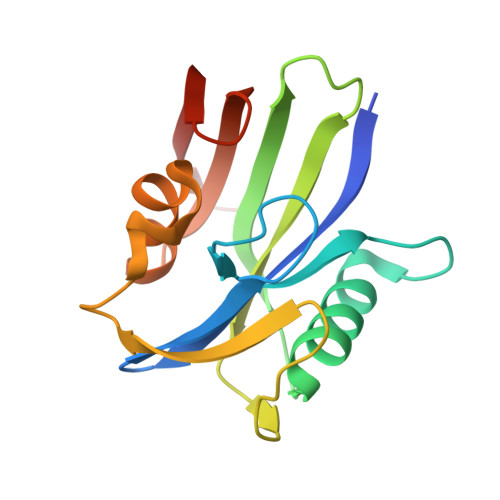Novel Class of Potent and Cellularly Active Inhibitors Devalidates MTH1 as Broad-Spectrum Cancer Target.
Ellermann, M., Eheim, A., Rahm, F., Viklund, J., Guenther, J., Andersson, M., Ericsson, U., Forsblom, R., Ginman, T., Lindstrom, J., Silvander, C., Tresaugues, L., Giese, A., Bunse, S., Neuhaus, R., Weiske, J., Quanz, M., Glasauer, A., Nowak-Reppel, K., Bader, B., Irlbacher, H., Meyer, H., Queisser, N., Bauser, M., Haegebarth, A., Gorjanacz, M.(2017) ACS Chem Biol 12: 1986-1992
- PubMed: 28679043
- DOI: https://doi.org/10.1021/acschembio.7b00370
- Primary Citation of Related Structures:
5NHY - PubMed Abstract:
MTH1 is a hydrolase responsible for sanitization of oxidized purine nucleoside triphosphates to prevent their incorporation into replicating DNA. Early tool compounds published in the literature inhibited the enzymatic activity of MTH1 and subsequently induced cancer cell death; however recent studies have questioned the reported link between these two events. Therefore, it is important to validate MTH1 as a cancer dependency with high quality chemical probes. Here, we present BAY-707, a substrate-competitive, highly potent and selective inhibitor of MTH1, chemically distinct compared to those previously published. Despite superior cellular target engagement and pharmacokinetic properties, inhibition of MTH1 with BAY-707 resulted in a clear lack of in vitro or in vivo anticancer efficacy either in mono- or in combination therapies. Therefore, we conclude that MTH1 is dispensable for cancer cell survival.
Organizational Affiliation:
Bayer AG , Berlin, Germany.

















